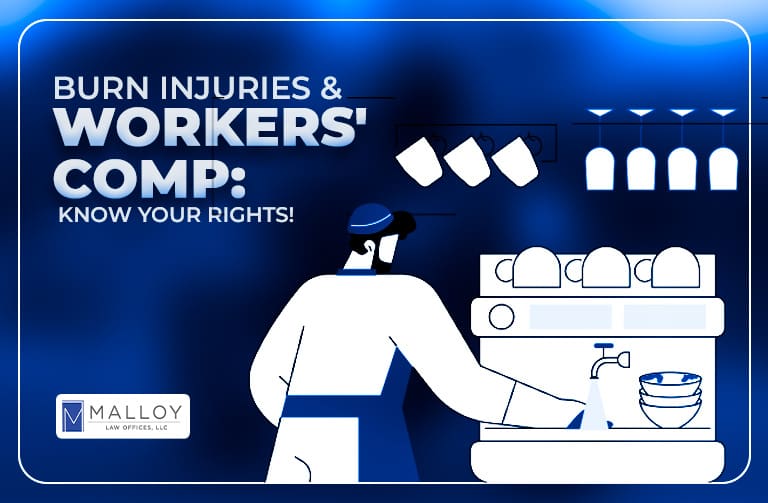A Guide to Workers’ Comp Burn Injuries for Cooks and Chefs
We here at Malloy Law Offices are proud to include robust workers compensation advocacy as part of our broader personal injury practice. Workers’ comp allows us to help more people claim just compensation and recover from physically and mentally scarring injuries, getting their lives back on track in the process. In this contact with the working public, we gain an appreciation for the many ways people earn a living. Workers’ comp is often associated with construction or industrial work. While these jobs can be dangerous, they’re only a fraction of the total workforce, much of which can claim workers’ compensation if injured on the clock. One group of working people that may not be sufficiently informed of their rights and how best to protect them is food service employees. Today’s Malloy Law blog post will cover workers’ comp burn injuries for food service professionals.

The Paradox of Kitchen Injuries: If They’re Always Happening, Why Report?
Anyone who’s ever worked in a kitchen knows that minor injuries happen all the time. A lapse in concentration while prepping vegetables may lead to a bleeding finger. Bad posture or incorrect technique when performing basic tasks can lead to muscle or ligament sprains. Burns are in this category of inevitable, recurring injury for chefs, line cooks, and so on. An errant sputtering of oil. A misplaced hand. A rush to plate an order. All of a sudden you’re searching for cold water and hoping it won’t prove too much of an inconvenience while dispatching the rest of this lunch rush.
If you’re always working with minor ailments of some kind, why both reporting them to management or HR? Nobody likes to be seen as a hypochondriac, and restaurants often preach the value of team spirit and doing your part to keep service running smoothly. However, there are a few things you may want to consider next time you find yourself wanting to hide, minimize, or “walk off” an injury.
The Secondary Risks of Workers’ Comp Burn Injuries
As with all burns, one of the chief risks of a burn suffered in a kitchen is secondary infection.
Let’s entertain a brief, hypothetical, scenario here. A line cook suffers an oil burn on his thumb while cooking. Our hypothetical cook is an industry veteran and has suffered probably thousands of minor burns like this. He rinses the burn, bandages it, and returns to the line ASAP. By the time the shift ends, the band-aid has come loose. Our line cook is commuting home with his hand uncovered. Maybe he opens his car door or holds a dirty railing on a bus or subway, either way, within a few days, the burn has become infected, and our cook will require antibiotics.
If he had reported his injury, creating an impartial record that the injury occurred in the workplace, his workers’ compensation benefits would cover the cost of these antibiotics and provide a portion of his wages while he recuperates. However, without a report, the cook may find himself paying out of pocket, burning through vacation time, and generally dealing with his injuries on his own.
Procedure is boring, personal vulnerability is difficult, but we simply cannot put a price on peace of mind. Reporting injuries in the workplace, even small, innocuous ones, provides vital protection from unseen circumstances.
If Your Workers’ Comp Burn Injury Claim is Denied
If, in attempting to claim workers’ compensation after an initially innocuous injury, you claim is denied, all hope is not lost. Any workers’ comp denial letter will include a deadline date to file an appeal. Seeking legal council from an experienced worker’s comp attorney is the vital first step in pursuing your claim further.
How Malloy Law Can Help
If you or a loved one has been injured in the workplace, Malloy Law can help. Our experienced team of attorneys will review your case free of charge and plot a path to win the just compensation you are entitled to. Contact us today, and let’s win your case.



